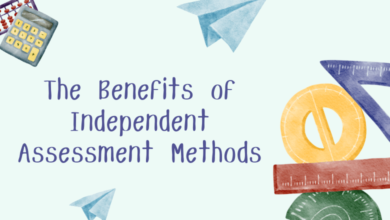Creating Equitable Opportunities: How Online Assessment Accessibility Benefits Both Students and Businesses

Traditionally, assessments have been a key gateway to opportunities – be it entry into higher education or landing a job. However, as we tread further into the digital age, these assessments must be accessible to all, regardless of their background, abilities, or circumstances.
In this blog post, we will explore how the enhancement of online assessment accessibility is not only a benefit to students but also a pivotal business strategy for enterprises looking to tap into diverse talent pools.
Upholding the Educational Promise
In the realm of education, assessment is the yardstick by which we measure learning.
However, every student’s learning needs, preferences, and styles are unique. The traditional, one-size-fits-all approach to testing can lead to a lack of engagement, unfair evaluation, and, in extreme cases, exclusion.
Overcoming Accessibility Barriers
For students with disabilities, traditional assessment methods can be a significant barrier. However, using technology to improve access to assessments, such as providing screen readers for visually impaired students or adjustable font settings for dyslexic students, can level the playing field.
By enhancing the accessibility of online assessments, educational institutions can:
- Reduce the stigma and stress associated with taking tests for students dealing with disabilities.
- Improve the satisfaction and engagement levels among all students.
- Use multiple types of content, such as videos and graphics, to offer varied means of assessment delivery.
Shaping Inclusivity in Learning Environments
An inclusive classroom fosters diversity, which in turn, enhances the learning experiences of all students.
When assessments are designed with accessibility in mind, it reflects an institution’s commitment to upholding this educational ideal.
Leveraging Accessibility in Corporate Training
Beyond the classroom, businesses are starting to recognise the value of an accessible approach to training and development. An inclusive training environment benefits not just the employees but also the bottom line of the enterprise.
Diversifying the Talent Pool
Companies are beginning to realise that a diverse workforce breeds innovation and better problem-solving. However, diversity initiatives are meaningless if the hiring process and training are not accessible to all.
Enhancing assessment accessibility can help businesses:
- Tap into a wider talent pool, which can unlock fresh perspectives and new talent.
- Abide by legal and regulatory requirements regarding the rights of employees with disabilities.
- Boost employee satisfaction and retention, which, in turn, can improve overall company performance.
Adapting to Employees’ Varied Needs
Just as students have unique learning styles, employees have varied ways of processing information and demonstrating their skills.
By adopting accessible online assessments, businesses can foster an environment that:
- Encourages continual learning for all employees, without the hindrance of inaccessibility.
- Offers flexible assessment timing and formats, which is especially beneficial for remote or globally distributed teams.
- Reflects a corporate culture that prioritises inclusion and employee well-being.
Practical Tools for a More Accessible Future
The key to leveraging the benefits of accessible assessments lies in their thoughtful design and the tools we use to implement them.
Online assessment platforms that prioritise accessibility can provide customisable interfaces, scripting that can be read by screen readers, and additional time for those who require it.
Partnering with the Right Technology
Selecting a technology partner that understands and embeds accessibility at the heart of their product ensures that assessments can reach a diverse audience.
A robust online assessment platform will offer:
- Usability for those with physical or cognitive impairments.
- Compatibility with assistive technologies for seamless use.
- Compliance with international accessibility standards.
In Summary
The future of assessment lies in its ability to be flexible, responsive, and inclusive. By adopting online assessment practices that prioritise accessibility, whether in education or corporate training, we aren’t just making a statement about our values; we are making a tangible investment in the future.
Discover more by diving into the depths of this intriguing subject. Check out!






